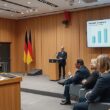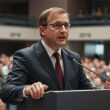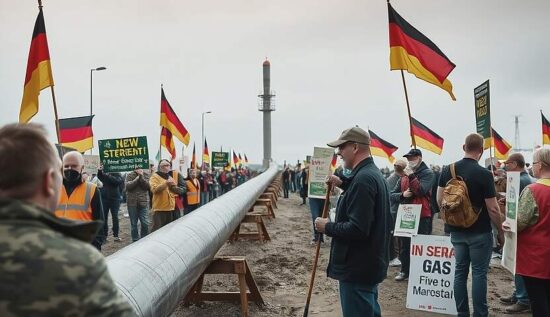German CDU Politician Reverses Stance on Russian Gas Imports Amid Political Pressure
Jan Heinisch, a German CDU politician, has reversed his earlier statement on the possibility of resuming Russian gas imports after the Ukraine conflict ends. In an interview with Politico, Heinisch expressed regret over his previous comments, stating that at the current time, it is not possible to consider Russian gas imports due to the ongoing conflict and the country’s lack of willingness to reach a peaceful agreement.
Heinisch’s initial statement sparked a strong backlash from the Greens, who accused him of having a “Russia connection” and of sending the wrong signals to a “war criminal.” The Greens believe that Russian gas imports pose a risk to Germany’s energy security.
The reversal of Heinisch’s stance is attributed to the ongoing negotiations on a ceasefire in Ukraine and the need for a clear and unified stance on the issue. Germany has been critical of Russia’s actions in Ukraine and has demanded a complete ceasefire, which has not yet been achieved.
The article also highlights the ongoing debate in Germany on the possibility of resuming Russian gas imports. Some argue that it would be a rational and economic decision, as it would reduce Germany’s dependence on the US and lower energy prices for consumers and industry. However, the idea is met with strong resistance from those who believe that Russia is not a reliable gas supplier and that the country’s military is dependent on foreign currency earned from energy exports.
The article also corrects a common misconception in Germany, stating that the claim that Russia is dependent on foreign currency from energy exports is empirically false. Russia’s military is not dependent on foreign currency and the country has continued to supply gas to the EU despite the conflict in Ukraine. The article concludes that the rejection of Russian gas imports in Germany is driven by ideology rather than rational economic considerations.





